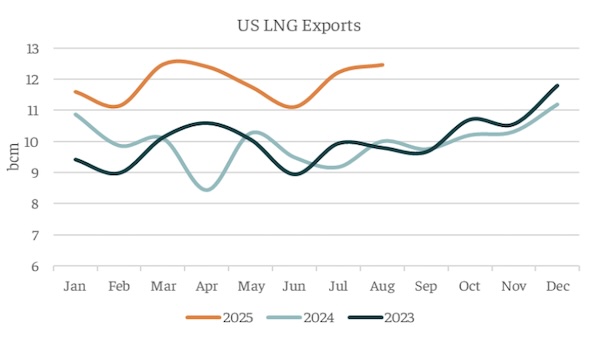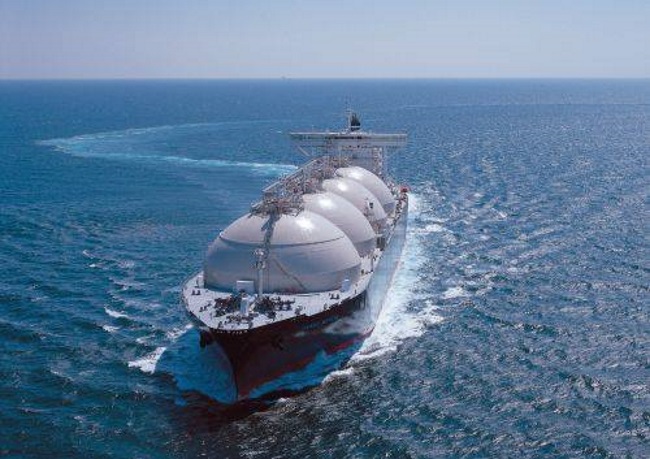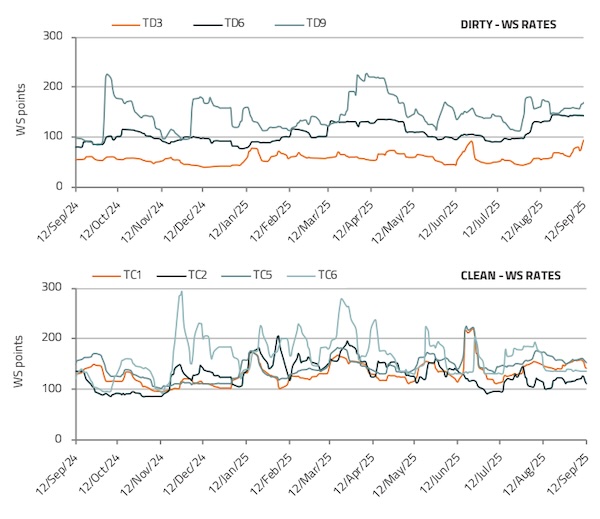Greece as a US LNG Hub: New Opportunities for LNG Shipping

Greece is emerging as a major regional hub for US LNG, in light of growing pressure to completely eliminate Russian LNG flows in the EU. In its latest weekly report, shipbroker Intermodal said that “as repeatedly proven by historical precedents across both past and modern eras, the flow of energy resources is governed not solely by economic forces but also by the imperatives of geopolitics. In today’s landscape, this principle is evident as the United States aligns its economic ambitions with broader strategic objectives in the natural gas sector. The global energy landscape is currently shaped by a confluence of geopolitical and economic forces, with the United States leveraging its burgeoning natural gas production to achieve dual objectives. At the forefront, it seeks to secure new markets for the significant increase in American LNG output anticipated from the expansion of several major liquefaction projects scheduled to come online in 2025 and 2026, in Corpus Christi, Plaquemines, and Golden Pass. Equally significant, U.S. policy aims to reduce Moscow’s fossil fuel revenue, constraining Russia’s ability to finance military operations in Ukraine”.

Source: Intermodal
According to Intermodal’s Senior Analyst, Mr. Nikos Tagoulis, “Europe appears to be an ideal partner in this strategy, given its commitment to eliminate reliance on Russian energy by 2027. However, the reality proves more complex, as EU data shows continued imports of Russian natural gas due to existing contracts, historical dependencies, pricing considerations, and divergent national interests. While countries like Lithuania and Poland have successfully eliminated Russian gas imports, along with the strategic vulnerabilities that such dependence entailed, others such as the landlocked Hungary and Slovakia remain hesitant to fully sever energy ties, preventing a unified EU-wide ban and reflecting varying levels of political will across member states. The U.S. expansion of natural gas production and LNG exports has reshaped global trade patterns, with shipments once destined for Asia increasingly redirected to Europe, and shorter routes to European ports reducing ton-mile demand, placing additional pressure on an already vulnerable market even as freight rates have eased from summer highs, remaining well above the depressed levels seen in February”.

“Within this evolving landscape, the recent visit of U.S. Interior Secretary and head of Energy Sovereignty Council, Doug Burgum, to Greece’s Revithoussa LNG terminal, near Athens, underscored the country’s growing strategic role as a transshipment hub for American LNG to Europe. Burgum emphasized that Greece is not merely a transit point but a central node in U.S. plans to replace European purchases of Russian gas with American LNG. Alongside Revithoussa, the Alexandroupoli FSRU in Northern Greece enhances the country’s capacity as an energy hub. Combined with Greece’s strategic location, these facilities make the country indispensable to the Vertical Corridor, a network integrating gas systems across Southeast and Central Europe. By channeling diverse gas supplies, via its LNG terminals, Greece helps reduce regional reliance on Russian imports”, Mr. Tagoulis said.

Source: Intermodal
He added that “for Greece, this alignment presents substantial economic opportunities. As a hub for U.S. LNG, the country is poised to benefit from the sector’s projected expansion. Recent trade flows underscore the trend: American LNG cargoes to Greece more than doubled y-o-y in July and August, while June deliveries grew notably as well. The United States accounts for 85% of LNG cargoes arriving to Greece in 2025, with other suppliers including Nigeria and Norway. This shift signals Greece’s growing influence in shaping regional energy security”.
“As geopolitics and energy economics converge, Greece is emerging as a key entry point for U.S. LNG into Europe. Deepening cooperation with Washington in the energy sphere is set to be mutually advantageous: it advances U.S. goals of reducing Moscow’s energy revenues and opening new markets, while simultaneously enhancing Greece’s economic prospects and consolidating its role in Europe’s broader strategy to diversify away from Russian dependence”, Intermodal’s analyst concluded.
Nikos Roussanoglou, Hellenic Shipping News Worldwide




